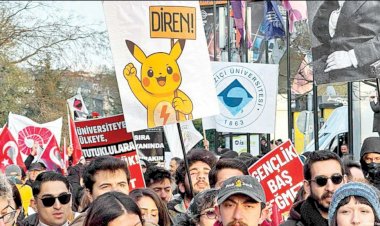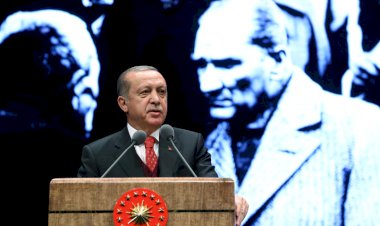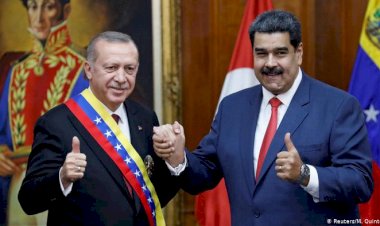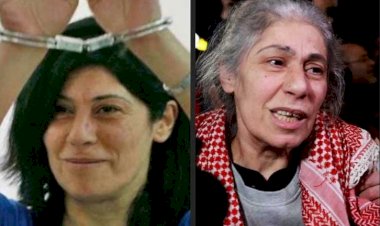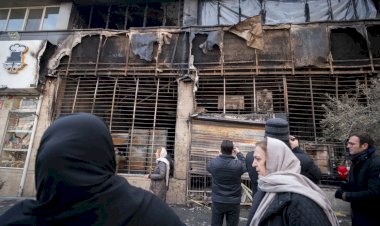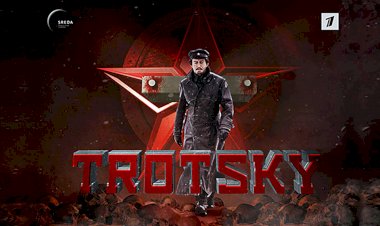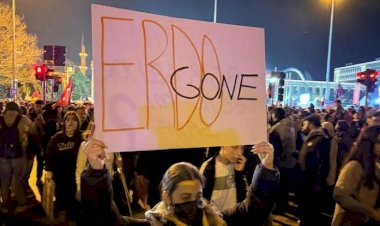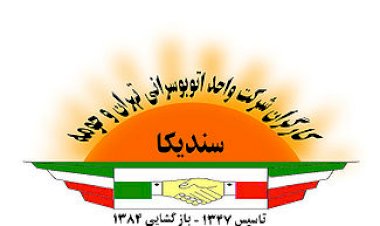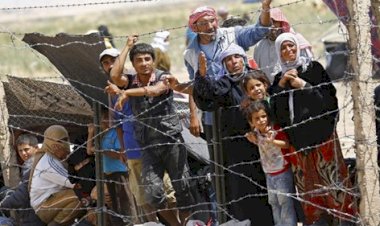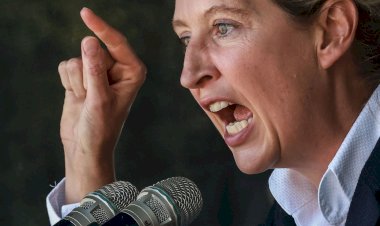A New Popular Front?
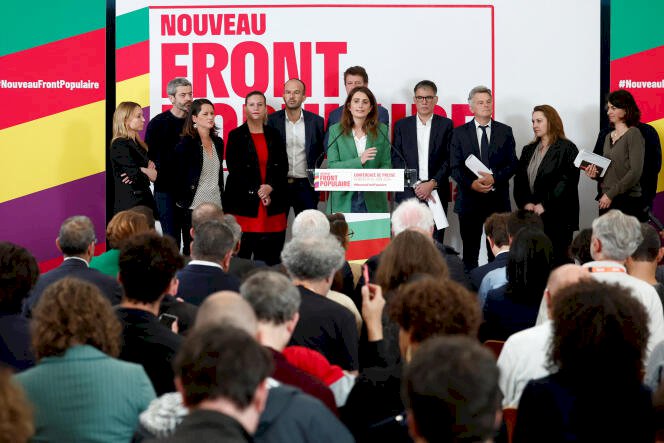
In France, the seven-year rule of the “president of the rich” Macron was spent with efforts to implement neoliberal policies, and it was none other than Macron who orders to suppress the workers who reject these attacks. Macron, who thinks he is Napoleon, has been busy with provocative activities that are way beyond his capacity, such as planning to send French troops into the war to support Ukraine.
Then, in the European Parliament elections held on June 9, Macron's party hit rock bottom, receiving around 14% of the votes. In contrast, the far-right National Rally (RN) won a resounding victory with 31%. In the face of these results, Macron’s call for early elections has been found by many to be strange. For the New People's Front (NFP) was founded on the left and became the main actor against the far-right. So, Macron's "either the far-right or me" blackmail has no chance of working this time. In short, Macron decided to hold early elections knowing that he had no chance of winning early elections. Apparently, the president of the rich and “the rich” believe it is time to include the far-right National Rally in their mechanism of power. Apparently, the far-right is thought to have reached a certain temper and in France, which is governed by a semi-presidential system, it is desired to be looser and lose the comfort of remaining in opposition by a portion of power being transferred to it. In the polls for the elections to be held on June 30, the National Rally (RN) appears to be at around 35%, while the New Popular Front (NFP) is at around 26-30%. Macron’s party, Ensemble, comes up far behind at 20%.
THE COMPOSITION AND THE PERSPECTIVE OF THE NFP
Led by Jean-Luc Melanchon, France Unbowed (LFI), Socialist Party (PS), Ecologists (LE), Communist Party of France (PCF), various parties that broke away from social democracy, and smaller left-wing organizations came together to form the New Popular Front (NFP). At this point, it is useful to recall the “old” Popular Front. The old Popular Front was founded and came to power in 1936 by social democrats, the Stalinist communist party and the center-liberal parties with the motto of fighting against fascism. In order not to scare the “moderate” bourgeoisie and not to divide the so-called anti-fascist front, the old Popular Front limited workers’ actions, sabotaged the general strike movement, left the workers and peasants alone against the fascists in the civil war in neighboring Spain and slowed down the revolutionary breakthrough in France. Then it dissolved with disappointment and failure. And in 1940, France would surrender to the Nazis with great submission.
It can be said that the New Popular Front is a bad caricature of the old Popular Front. In fact, the components are no different. The LFI, led by the left-wing social democrat Melenchon, and the completely corrupt, rotten establishment elements to its right. Although Melenchon displays a profile that is sometimes at odds with the system with its left-wing populist discourse, other parties are entirely the apparatus of the big bourgeoisie.
LFI leader Jean-Luc Mélenchon, having received around 8 million votes in the 2022 presidential elections and narrowly missing the second round with 22%, formed the NUPES alliance with outdated socialist, “communist”, environmentalist, etc. parties in order to gain a few more votes in the next parliamentary elections, thus saving these parties from their deathbed. However, these formations had completely fallen out of favor with the people as establishment parties fully integrated to the system. After this point, they continued to criticize Melenchon from the right at every opportunity and even though they established the Popular Front together, they still continue to do this.
The parties of the New Popular Front (NFP), other than the LFI, advocate a staunchly pro-NATO position on the Ukraine War while also ardently supporting Israel’s massacres in Gaza. They go so far as to accuse Jean Luc Melenchon and his party LFI, which stands in solidarity with Palestine, of being anti-Semitic. For example, former Socialist Party President François Hollande went so far as to say of Melanchon, who declared support for Palestine, "If he wants to support the NFP, he should stay on the sidelines and shut up." During his presidency between 2012 and 2017, Hollande was a staunch practitioner of neoliberalism, pursued immigration policies so extreme that he deported gypsies and, moreover, appointed Macron as economy minister causing him to raise in politics. The New Popular Front consists of these types of people. Fabien Roussel, the leader of the Stalinist French Communist Party, is also part of the anti-Melenchon campaign and is so strident that he told the press: “Jean-Luc Mélenchon is not part of the political landscape of the New Popular Front.” In short, the NFP has a right wing and a left wing. The left wing consists of the left reformists led by Melenchon, and the right wing consists of the parties we would call neoliberal enemies of the people. And the right wing’s voice is louder. Melanchon, on the defensive, is busy taking it easy, stressing that he will not impose his perspective and reminding his partners that he is the one who saved their political lives.
INDEPENDENT CLASS ATTITUDE
It is clear that workers and youth are suspicious of the New Popular Front, which is filled with elements of the system whose nature is so obvious. On the other hand, the masses will be inclined to vote for the NFP against the possible election victory of the far-right RN, even if they don’t like it. The masses have no illusions about the reality and nature of this alliance, but they do not see any other means to prevent the RN from coming to power. However, it is important to resist this pressure. It should not be forgotten that those who paved the way for the far right were so-called leftist capitalist politicians like Hollande, Jospin and Mitterand. Indeed, if the New Popular Front, which has a very strong right wing, wins the elections and gets ministerial seats (in which case it is very likely that they will fight and split), it will not be inferior to Macron in terms of loyalty to the neoliberal program. Because of this, one should not fall into the trap of “whoever is against RN must be supported”. This tactic, which has been used in French elections for years, has worked for politicians such as Macron, Chirac, Hollande, etc., but the result has been a breakthrough by the far right. That is why revolutionary alternatives need to be strengthened. This historic task will not be accomplished overnight, of course. But without this perspective, disintegration is inevitable. Indeed, there are alternatives to the French revolutionary movement in the elections. Of these, Lutte Ouvriere runs its candidates in almost all electoral districts, while the NPA-R and Revolution Permanente also ran candidates in various electoral districts. The workers and youth of France should choose these candidates and prepare for the great class struggles that await them in the near future.



